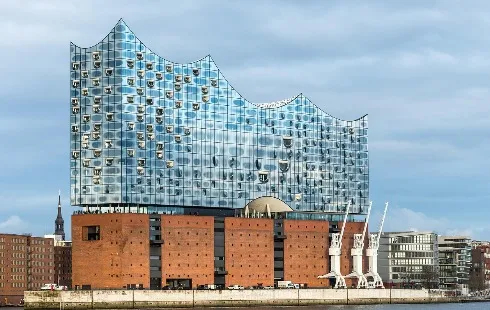
Trump's Tariff War: China Urges Immediate Repeal of Tariffs Amid Countermeasures
Section: News
The latest updates on the political landscape in Germany reveal ongoing negotiations between the Christian Democratic Union (CDU), the Christian Social Union (CSU), and the Social Democratic Party (SPD) as they strive to finalize a coalition agreement. The discussions, which have reached a crucial phase, are expected to see significant movement next week, as stated by leading figures in the negotiations.
As the coalition talks continue, key representatives have expressed optimism about entering a decisive phase. Alexander Dobrindt, the head of the CSU parliamentary group, indicated that there is a collective willingness to start wrapping up discussions in the coming week. This sentiment is echoed by various party leaders as they navigate the complexities of forming a government.
Notably, Günter Felssner, a CSU politician, has withdrawn his candidacy for the position of Federal Minister of Agriculture, a role initially supported by Bavarian Prime Minister Markus Söder. This decision adds another layer to the ongoing negotiations within the coalition framework.
In a recent parliamentary session, the newly formed Bundestag elected four deputies to support the President of the Bundestag, enhancing the parliamentary structure and ensuring a balanced representation across party lines. Among the elected deputies are Andrea Lindholz (CSU), Josephine Ortleb (SPD), Omid Nouripour (Greens), and Bodo Ramelow (Left Party), while a candidate from the Alternative for Germany (AfD) failed to secure enough votes.
Julia Klöckner of the CDU has been elected as the new President of the Bundestag, marking a significant milestone as she becomes the fourth woman to hold this position. Her election was confirmed with a majority vote, highlighting the evolving dynamics within the German political arena.
Key Issues at StakeThe negotiations are currently centered around major points of contention, particularly in migration and economic policies. The CDU and CSU have proposed a shift in asylum policy, advocating for stricter measures to manage migration, including the rejection of asylum seekers at Germany's borders. The SPD has shown tentative support for these measures, contingent on coordination with European neighbors, but opposes further restrictions aimed at reducing illegal migration.
One contentious proposal from the Union includes limiting benefits for Ukrainian refugees, suggesting they receive reduced asylum payments instead of standard welfare benefits. The SPD has firmly rejected this idea, underscoring the divisions that remain between the parties.
On the economic front, disagreements persist as the CDU and CSU advocate for significant cuts to corporate taxes, while the SPD argues for an increase in the top income tax rate. The SPD's stance also includes proposals for a wealth tax and the elimination of the existing splitting of tax allowances between married couples, which has sparked internal tensions within their party.
Structure of the Working GroupsTo facilitate the negotiations, a total of 17 working groups have been established, each focusing on specific policy areas. Noteworthy among these groups are those led by prominent party figures, including the SPD Vice-Chair Dirk Wiese, who heads the working group on migration and integration, and the economic group led by Minister-President Alexander Schweitzer.
The working group overseeing budgetary and financial matters is particularly crucial, given the previous government's inability to resolve fiscal issues. This group aims to address the pressing financial challenges facing the country.
Next Steps in the Negotiation ProcessAs the working groups submitted their findings, the next phase involves a steering committee reviewing unresolved issues. This committee includes key representatives from both coalitions, ensuring that the leaders are engaged in the process. A timeline for the forthcoming negotiations is expected to be established soon, paving the way for clearer expectations moving forward.
Despite the ongoing challenges, party leaders remain hopeful about reaching a consensus on the coalition agreement. The CDU's General Secretary has indicated that while the negotiations are complex, the focus will be on resolving the outstanding issues without succumbing to time pressures.
In conclusion, as the coalition talks progress, the German political landscape remains dynamic, with leaders striving to navigate their differences and forge a path toward a stable government.

Section: News

Section: News

Section: Politics

Section: News

Section: News

Section: Politics

Section: Arts

Section: News

Section: News

Section: Business

Health Insurance in Germany is compulsory and sometimes complicated, not to mention expensive. As an expat, you are required to navigate this landscape within weeks of arriving, so check our FAQ on PKV. For our guide on resources and access to agents who can give you a competitive quote, try our PKV Cost comparison tool.

Germany is famous for its medical expertise and extensive number of hospitals and clinics. See this comprehensive directory of hospitals and clinics across the country, complete with links to their websites, addresses, contact info, and specializations/services.

Join us for a captivating organ concert featuring Giacomo Gabusi from Bologna. Experience an evening of classical music with works by Wagner, Bossi, and Messiaen, among others. This event is part of the Pasinger Orgeltage series, promising a delightful musical experience. Admission is free, but...
No comments yet. Be the first to comment!